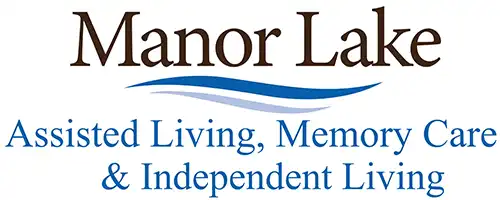
Getting the news that your parent, in-law, spouse, or other loved one has dementia is devastating. There’s no other way to put it. Here at Manor Lake Assisted Living and Memory Care here in Athens, we will be honored to help you every step along the way. Whether that help to you is direct in the form of you and your loved one joining our memory care community or by simply offering free education via this memory care blog, rest assured our hearts go out to you because very few can directly relate to what you are going through.
So, for those of you researching what construes the dementia journey, we hope to help you out here today. Dementia is a general term for a group of complex diseases that affect memory, thinking, and behavior. Alzheimer’s disease is the most common form of dementia and affects older adults.
Dementia begins with mild changes in mental function and slowly worsens to severe impairments in cognition. If you have a loved one with dementia, knowing these changes can help you plan for their care.
About Dementia
Dementia is more common with age, one-third of people over 85 may have some form of dementia, but it’s not a normal part of aging. There are different types of dementia, many causes of cognitive function, and varying symptoms depending on the type and stage.
Risk factors for dementia include the following:
- Age: Affecting people 65 and older.
- Family history of dementia: Parents or siblings with dementia
- Medical conditions: Diabetes, Down syndrome, multiple sclerosis, heart disease, and sleep apnea.
- Lifestyle factors: Smoking, heavy alcohol use, poor diet, lack of exercise, high blood pressure, and high cholesterol if not treated.
- Brain injury: Severe or repeated head injuries.
- Infection of the brain: Meningitis and syphilis
- Race: African Americans and Hispanics have higher rates of dementia.
- Depression
- Stroke
Stages of Dementia
Dementias are progressive diseases, and changes in functional ability continue to occur. Three stages of dementia include early or mild, middle or moderate, and late or severe. Early onset/mild cognitive impairment refers to Alzheimer’s disease diagnosed at a younger age.
Early or Mild Stages of Dementia
In early or mild dementia, people aren’t always aware they have the disease. However, some people may notice slight changes that something is wrong with their thinking but can still function independently with little help.
Changes can include memory lapses and forgetting things that can affect daily life. Signs and symptoms of early or mild stage dementia include:
- Forgetfulness and memory loss of recent events
- Getting lost and misplacing things
- A shift in personality and mood, such as depression and withdrawing
- Difficulty with complex tasks such as managing finances
- Difficulty with learning new things
- Difficulty following conversations and expressing thoughts
- Difficulty concentrating or limited attention span
Middle or Moderate Stage of Dementia
In the middle or moderate stage of dementia, people need more help with everyday activities and self-care as memory and thinking ability continue to deteriorate. At this stage, more people are aware of the condition.
Signs and symptoms of middle/moderate stage dementia include:
- Memory loss of the past
- Unable to carry out activities of daily living
- Confusion
- Poor judgment
- Personality and behavior changes such as agitation, mood swings
- Repeating questions
- Changes in sleep patterns
At this stage, making life easier for a loved one with dementia can include speaking to their doctor about care, treatment options, and support services.
Late or Severe Stage of Dementia
In late or severe dementia, the disease progresses to a point where it affects functioning and physical capabilities. Care needs are high and may require continued support 24 hours/day to ensure the highest quality of life.
Signs and symptoms of late or severe stage dementia include:
- Severe memory impairment where one cannot remember family and friends.
- Inability to communicate verbally with unrecognized speech
- Functional impairment such as incontinence and inability to eat and walk, leading to malnutrition, weakness with loss of muscle control, and susceptibility to pneumonia.
- Disorientation
Diagnosing Dementia
There is no cure for dementia, but an early diagnosis can help families plan for the future and consider different care options. Doctors can address family history and underlying conditions related to cognitive decline with treatment.
Other methods and tests used to diagnose dementia include:
- Cognitive and neurological tests
- Brain scans
- Psychiatric evaluation
- Genetic tests
- Blood tests
Support for all Stages of Dementia
At Manor Lake Assisted Living & Memory Care, we offer premier home environment care in a loving family atmosphere for your loved one. We facilitate the ability of your loved one to continue living with dignity, respect, freedom, and choice. Our home environment enables seniors with Alzheimer’s, Dementia, and other memory impairments to maintain the highest quality of life while providing peace of mind to their family and friends.

